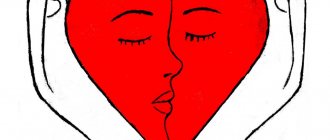There is a definition of poverty “by income”. For this purpose, a living wage is taken. As of the second quarter of 2021, the average in Russia is 11,280 rubles for the working population. If your income is below this amount, you can consider yourself poor. A standard family with two able-bodied people and one child must have an income of at least 32,950 rubles per month in order not to fall under the definition of poor people. But, in addition to mathematical calculations, there is also poverty “by deprivation”, when you cannot afford what your compatriots can afford. Here are the characteristics that scientists identify to assess poverty “by deprivation”:
- inability to eat normally;
- inability to buy new clothes;
- inability to purchase essential goods;
- an extremely poor selection of durable goods, as well as the inability to purchase any new goods;
- inability to pay for any forms of classes for children;
- inaccessibility to purchase necessary medical services, medicines and goods;
- inaccessibility of normal housing conditions (lack of own housing and/or availability of less than 12 square meters of total area per person);
- inaccessibility of quality jobs (low wages are accompanied by the absence of basic social guarantees provided for by Russian legislation);
- inaccessibility of normal socio-psychological well-being as a result of the chronic dominance of emotions that are quite difficult for a person.
People of low income are always skeptical
If a person receives a low salary, then he is almost always dissatisfied with his life and the behavior of others. In any individual he sees a fraudster who is trying to deceive other people. Often poor people needlessly blame other citizens, and are also skeptical not only about work, but also about leisure.
Rich people are more gullible. They often leave apartments or cars open, since they get all the property quite easily. The poor know how to value their goods, so they try in every possible way to protect themselves from thieves and scammers.
Oranges and more: what else to add to your home to attract wealth
Wife and mother of kings: why Kate Middleton took the place of the sick Elizabeth II
Prices in the beauty salon of Morgenstern's wife became known
How to recognize a poor person?
Psychologists say that it is not life circumstances, but psychological characteristics and ingrained stereotypical habits that prevent a person from crossing a certain line and starting to earn more.
In other words, poverty is a state of mind . Many poor people cannot even hypothetically imagine buying an expensive car or booking a room in a five-star hotel - subconsciously they do not believe that they deserve better treatment, a higher quality of life.
Complains about life
There will always be someone to blame for all his financial failures. He is constantly unlucky, he was born at the wrong time, in the wrong place, in the wrong family and under the wrong star.
Parents, politicians, neighbors, inflation, America, a colleague from the next department are to blame. Such a person does not consider himself the cause of his troubles - he is only a consequence.
Everyone owes him
Basically, of course, the state is “in debt.” They didn’t give me a free apartment, didn’t provide a subsidy for utilities, didn’t provide me with a budget-funded place at a prestigious university, didn’t make medicine paid for – and so on ad infinitum.
Stability comes first
“Thank you for having such a job!” - low-paid, hated, with a tyrant boss and a bunch of penalties. But stable! He won't change anything.
He will complain, reproach, make complaints left and right, but quitting of his own free will is not his story.
Fear of change
Any change and uncertainty is a risk for him. The poor man really wants to be vouched for, hugged tightly and promised that everything will be fine. And, preferably, they issued a guarantee card for future success. It won't happen that way.
There are no guarantees. Therefore, he is unlikely to change jobs, move to another city, or open a new business. A bird in the hand is about him.
Low self-esteem
He has no special achievements, so there is nothing to be proud of. Self-confidence has reached the level of the plinth - all he believes in is that you can’t jump above your head and, in general, nothing depends on him.
Greed
Money as an end in itself. He earns money not for pleasure, but so that he HAS MONEY.
Stingy, afraid to spend an extra penny on himself
Beggars assume, rich check
Quite often there is a need to find out the answer to a particular question. People who do not have significant wealth tend to trust assumptions and unverified facts.
People who have significant capital are accustomed to checking absolutely any information. Therefore, if they are interested in the answer to any question, they consult specialists and also study reliable sources of information.
For the fourth month in a row: the UN spoke about an increase in world food prices
Don't Compromise: How a Boss Can Deal with Very Difficult Employees
Geophysicists and political scientists: the least stressful professions named
Do you prefer instant benefits?
You need washing powder. A package for 3 kilograms costs 500 rubles, for 1 kilogram - 200 rubles. Obviously, a large pack is more profitable, but you buy a small one - it’s cheaper!
You can call this saving only in one case: if you have problems with mathematics.
For those who know how to count, it is obvious that such a choice will not help save money. If you use the same household chemicals, it is logical to buy large packs or take a new package at a discount, even if the old one is not finished.
It’s another matter when there is not enough money to use such tools. In this case, it’s time to stop considering survival as saving and rethink your financial situation.
The poor choose the cheapest and the rich choose the best
People with low salaries prefer to choose the cheapest food or inexpensive clothing. This often results in them purchasing products based solely on price. As a result, they never wear the purchased clothes, since they have an unattractive appearance.
Wealthy people focus on quality when searching for suitable products. They study the material from which the clothes are made, and also carefully try on the item of clothing. Properly chosen clothing can last for quite a long time.
Parental Settings
The psychology of poverty is, for the most part, a story from childhood. This is where most prejudices, one way or another related to finances, grow: be more modest, why spend so much money, you need to live within your means ...
It is unlikely that such words were uttered with malicious intent - what parent dreams of raising a child to be a loser? However:
- “What are you comparing? Katya’s dad is the director of the restaurant, and who is yours? So Katya wears a new jacket every year, you can’t afford that.”
- “Beautiful, successful, driving? Of course, a prostitute. It didn’t work!”
- “The authorities are to blame for everything! Who was dad before? Engineer, dear man! And now he can’t get a job as a janitor.”
- “Mom, can the girls and I go to the cinema? Look what you came up with, why spend money - it’s better to watch a movie at home.”
A child's unconditional love for his parents turns off the filters - he strives in every possible way to imitate such important and significant adults. Ctrl+c, Ctrl+v - and the parent script is inherited in an almost unchanged state.
Ask yourself: “Are my parents financial authorities for me?” Does mom manage millions, perhaps grandma made a fortune knitting socks?
No? Destroy the belief that “mom is always right” - you do not have to bear the entire burden of birth errors and repeat the family scenario. Again, here too, independent work with beliefs gives pretty good results.
The poor value money, and the rich value time.
People who dream of wealth are absolutely sure that if they have money, they will be able to enjoy a long luxurious life. They spend a lot of time working, but are unable to realize their potential.
Don't give ridiculous reasons: how to refuse a boss who calls after hours
You can conduct online training: how a student can earn real money
We rely on a shortened model: how to choose a bridesmaid dress for a woman over 50
People with significant capital value only time. They understand that they cannot extend it even if they have a lot of money. They try to gain as much experience as possible to change and improve their destiny. They are focused on leading a fun and productive life, so they never refuse to help others.
Signs of the psychology of poverty
There are many of them, but there is one main one (universal).
80% of people have signs of a poor man's psychology!
The main sign of the psychology of poverty is anger at the rich and envy of other people's well-being!
Observe your emotions and feelings. If you see a luxury car on the street, honestly tell me what you feel deep down?
If everything inside you is rejoicing and your inner voice screams: “ This is a car, dude!” If you tense up and you will have the same, 100% ” - that means everything is fine with you and you think positively.
Against…
If your gut tells you: “ What a bastard, I bought myself such a car!” Of course, it’s easy to approach the “chicks” with this one...” or “of course, my ancestors gave it to me...” or “a rich husband bought it...” or “he’s messing around with something, stole 100 pounds . In this case, the psychology of poverty is evident.
Don't be alarmed if the second option is closer to you. Recognizing the problem is half the solution.
The next sign of the psychology of poverty is the desire to “ appear and not be .
I’m sure you know people who, with their last money, bought a 10-15-year-old Behu or Porsche Cayenne, thousands for 500-600 rubles, and they didn’t even have money left for gasoline and repairs.
But to appear in the yard a couple of times in front of boys or girls in a cool car is the dream of their whole life. It is likely that this “trough” will fall apart the next day or its careless owner will “get involved” in repairing some expensive part for 100,000 rubles. Realizing this, a person with a poor mind still makes a decision about such an acquisition.
I’m not even talking about buying the best iPhone models on credit or using the latest “grandmother’s funeral”...
The third indicative sign of the psychology of poverty is to be friends with the poor, narrow-minded environment and be afraid to change it.
Sad but true!
Until now, I see quite a lot of young people who, like grandmothers on benches, discuss their difficulties and problems according to the principle “whoever has the best luck wins.”
Okay, pensioners are still talking about hard life, but young people... Nobody wants to work, everyone is waiting for manna from heaven or help from their parents.
Guys, go to work!
Another topic... A bunch of men are sitting, playing “tanks” and just toiling around with bullshit, while they are being worked on and on. Laziness, despondency and weakness of will are the best delicacies that feed the psychology of poverty.
Summarizing these signs, I will say that all of them in one way or another relate to the fear of change and are caused by a person’s own passivity.
Aphorism
As Bill Gates said: “A dollar can’t fit between your butt and the sofa.”
Honestly ask yourself whether you are an active person in life or a couch potato. Money doesn’t like lazy people and whiners; such people definitely won’t see wealth! My job is to share my opinion, but choose for yourself how you want to live.
The poor focus on competition, while the rich prefer to create
Any person facing poverty wants to increase their capital. To do this, people usually try to emulate more successful citizens. They rarely think that there are other ways to achieve success. They are confident that if they follow the beaten path, they will be able to achieve their goals.
Rich people rarely focus on others. They prefer to create something new, so they concentrate on realizing their hidden potential. They bring their unique and inimitable ideas to life, increasing their capital.
What can lead to poverty
The risk of poverty in Russia is especially high for families with children.
According to the Federal State Statistics Service, in 2015, 37% of Russian households had minor children. Among poor households, this share is almost twice as high - 63.1%. Single-parent and large families are at the forefront of this risk. Another risk factor is poor health. “Poor health triples the risk of falling into income poverty, and increases the risk of chronic poverty by more than five times. The risk of poverty also more than doubles if there are minor children in the family, and these trends are intensifying over the years,” says the HSE study.
Beggars are critics and gossips, while rich people prefer to praise other people.
People who do not have good income are often in a bad mood. They prefer to criticize and judge other citizens. Even within family circles, any positive topics are rarely raised, so usually people just gossip about the lives of their relatives and friends.
Rich people don't want to waste time on meaningless gossip or criticism. They appreciate good attitude and unexpected gifts. In any person they see only positive qualities and opportunities for growth and development.
You don't buy what you need
It’s one thing not to buy a new smartphone model because the old one still works great. Another is to use an inconvenient and ugly polished cabinet that you inherited from your grandmother, although you can buy a new one relatively inexpensively.
When the mattress looks more like a miniature bomb testing site, and the legs of the stool are wrapped with tape for reliability, this is not saving money. Just take a photo and look at it: these are the pictures used to illustrate articles about dysfunctional families.
A thrifty person, unlike a beggar, cares about the quality of his life, although he avoids unreasonable expenses.
Beggars ask amateurs for advice, while the rich turn only to experts
If any difficulties arise at work or in life, then poor people can easily take the advice given by an amateur. They turn to friends or relatives who do not have the necessary knowledge and experience. This often leads to them making wrong decisions.
They may simply get fired and other consequences of unprofessionalism in the workplace
What does it mean to be proactive and why being proactive is not so risky?
Emphasis on human psychology: how to increase sales via the Internet
Wealthy citizens prefer to take advice only from experienced experts. Additionally, they spend time and effort to ensure the reliability of the selected specialist.
How to get rid of the psychology of poverty - TOP 5 effective ways
Have you found signs and habits of the psychology of poverty in yourself or someone you know? No problem!
Below I have told you how to get rid of them once and for all. Just keep in mind that this will take time. After all, our thinking is rather inert and does not quickly “let go” of the familiar picture of the world.
Method 1. Take responsibility for your life
Tell yourself:
Today I made a firm decision to take full responsibility for my life! From now on, everything that happens to me, in one way or another, concerns my conscious choice. I am free to make my own decisions about what to do and what not to do, and I am aware of the consequences of such decisions.
This approach to life will give you a powerful start in eradicating the psychology of poverty.
Freedom and happiness are inextricably linked with the concept of responsibility. This especially applies to men!
Method 2. Change environment
If you feel that your environment is engaged in outright degradation - start changing it!
Do it smoothly, don’t be rude to your friends and acquaintances, don’t pretend to be the “right guy.” Engage in self-development and start communicating with successful and purposeful people.
This way, your old environment will soon “fall off” naturally, and you will feel a wave of positive changes. Your thinking will change, and you will no longer be as dependent as before on other people’s opinions and past relationships with people.
Method 3: Acquire a Marketable Skill
Get involved in a specific business that will bring you more income than you already have. An in-demand marketable skill is what you need to earn more. Don’t cling to a stable and low-paid job, constantly learn new things.
Perhaps the business you are currently doing needs a big adjustment or a complete replacement with a new one. I know from myself that starting from scratch is always difficult, but sometimes it is a necessary necessity, which will eventually lead you to wealth, happiness and spiritual harmony.
Method 4. Study other people's success stories
Studying the experiences of other successful people does not guarantee that you yourself will become successful and earn a lot of money. But this method will definitely begin to change your thinking, gradually eliminating negative attitudes.
Many outstanding people started from scratch and went through a difficult journey to become rich and famous. After getting acquainted with their biography, you will see that nothing is impossible, you will be inspired and begin to act.
Method 5. Set specific financial goals and work towards them
A goal that is specific, measurable, achievable and time-bound is what you need!
If you install it, you will definitely “bury” the psychology of poverty once and for all. She will run from you like hell from incense, her heels sparkling.
Go ahead, find like-minded people - this will make it much easier for you not to give up. I recommend searching the Internet or buying books by Brian Tracy, who is one of the best experts in the world when it comes to setting goals and achieving success.
The poor buy big TVs, while the rich boast large libraries
Beggars prefer to spend their free time watching various television programs or films. They do not want to develop and learn, so they cannot create or come up with new ideas.
Rich people spend their leisure time reading books. With the help of printed publications, they gain a lot of new knowledge and skills, so they can easily realize their unusual ideas and original ideas.
Thus, there are certain things and features by which one can determine whether a person is rich or poor. This is especially clear in relation to surrounding people, in terms of the speed of solving problems and in behavior in society.
Found a violation? Report content
Books and materials that will help you change “poor” thinking to “rich” thinking
- The book “Think and Grow Rich” by Napoleon Hill. I believe that this is a fundamental work in the psychology of success. The book outlines the thoughts of the richest people of the 20th century. Journalist Napoleon Hill devoted his entire life to researching the principles of success and achieving material independence. To do this, he interviewed hundreds of prominent personalities of the first half and mid-20th century. I read it with pleasure and recommend it to everyone.
- The Rich Dad series of books by Robert Kiyosaki. Guys, this is something! I wrote above about his first and most famous book. Today Kiyosaki has books on investing, running a business, and financial literacy for women, teenagers and children. This is a treasure trove of financial knowledge for the whole family!
- Robert Kiyosaki's game “CashFlow”.
Game Cash Flow by Robert Kiyosaki, board version 101
It dramatically changes thinking and helps to transfer game situations to real life. Now there are several versions of this game: Cash Flow 101 and 202. The first version is simpler, it is better to start with it and play 10-15 times. “Cash Flow 202” is for advanced players. - Film “The Secret”. You've probably heard about it or already watched it. It talks about the “law of attraction” and the power of our thoughts.
- Video “Get Rich in 60 Minutes” – an hour-long seminar by Robert Kiyosaki with translation. It's really cool, I've watched it more than once. In a succinct form, Robert provides a clear understanding of the nature of money and provides examples of how rich and poor people think when handling their finances.
- Russian documentary film “10 laws of wealth”. It came out a long time ago, but clearly illustrates the basic approaches of people to making money. From a scientific point of view, it explains why money “sticks” to some people, while others are “bypassed”. All this is very well shown through the prism of the Russian mentality. I recommend watching!
The beggar's mentality - how people who are not responsible most often get away with it
Lack of responsibility is another characteristic of a nothing person. He never knows what will happen to him or his loved ones tomorrow. However, if his environment allows him to dangle his legs, such a person will happily take advantage of it. And he will also consider this his personal achievement. That is, he will simply be happy that he managed to deceive someone. Or maybe beg your parents for more money than before. This is a position of boyishness and bad manners.
As a rule, in the reasoning of such a person you will not find even a shadow of cultural behavior. Perhaps, if you have recently known a representative of such a poor class in every sense, then he will hold on with all his might for some time. Maybe even pretend to be cultured, I would even say try to pretend to have at least some healthy attitudes and beliefs. However, their absence will still give itself away, at least in gestures and facial expressions: the car door is opened somehow by a clunker, frankly speaking, this is alarming, especially when the person talks so much and persistently about business and his supposed earnings.
Most often, when talking, they take very long time intervals before answering a directly posed question. Because there is nothing in the outside world that can speak of the success of such a person and he needs time to think and provide the necessary information. You just need to seem like someone, and not be yourself.
You measure everything with money
In Ushakov’s explanatory dictionary, “save” means Save, “spend carefully, make a profit on something.” Not overpaying is a useful skill for any income. But with tight budgets, saving turns into a fear of overspending, because survival literally depends on it.
As a result, a person begins to measure everything with money, always thinks about them, evaluates people and things in money. Although if you interrupt your usual line of thinking for a second, it becomes obvious that value is not equal to price. But a poor person (including in spirit) prefers not to notice this, because his world revolves around money.
Definition
As soon as a person realized that he could not survive alone, communities began to be created where there were never people equal in wealth. There have always been people who knew how to get wealth and keep it, and those whose wealth did not linger. Many believe that it was easier to achieve goals in the past, but even today many make their way from the very bottom. This happens because some are focused on achieving their dreams and achieve this by any means, while others are afraid to take risks and change something in their lives. A constant lack of money and a reluctance to change one’s financial situation is the psychology of poverty.
It is common for people to strive for stability. If a person lived his entire childhood in poverty, then already at a conscious age, even if he achieves incredible success in business, he will not strive to spend money on pleasure, but will count every penny. The “Christmas Carol” about Scrooge, familiar to everyone from childhood, most fully describes this human state of mind. This story is based on real events and reflects how a poverty complex develops into pathological stinginess.
An inferiority complex is a leading complex that gives rise to a series of behavioral deviations. This is a normal phenomenon of the human psyche. A person who has been abandoned by his significant other will start fleeting romances in order to stop suffering for her. An inferiority complex often transforms into a poverty complex. This is the whole psychology of poverty.
Search for a sponsor
A similar sign applies to women who set themselves the task of finding a rich man who will satisfy their “wants”. Such ladies can be found more and more often in the modern world. When choosing a partner, they pay attention only to his material status, and everything else does not matter.
Of course, if a woman wants to live well, there is nothing wrong with that, but it is more important to look deeper. If a woman gets everything “just like that,” she stops developing and inventing something.








